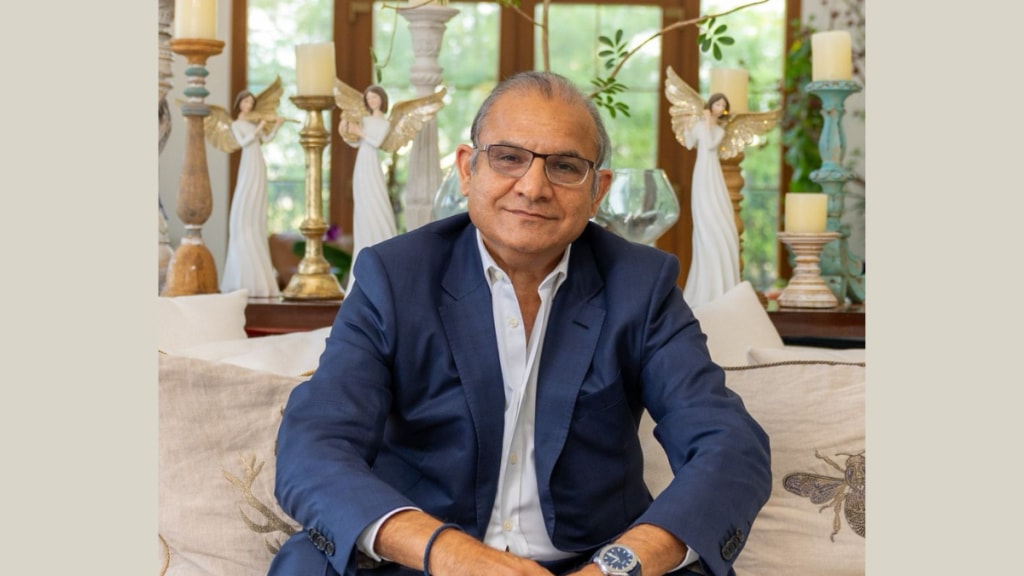Resilience isn’t about bouncing back—it’s about bouncing forward. In today’s world, where disruptions are frequent and change is constant, resilience has become less of a trait and more of a strategy. For businesses and leaders alike, it’s not just about survival; it’s about finding strength in setbacks, clarity in chaos, and growth in uncertainty.
Tariq Chauhan, Vice Chairman of EFS Facilities Services Group, a global leader in integrated facilities management headquartered in Dubai, believes that resilience is the single most defining attribute of a truly transformational leader. And he would know that having led a global workforce of 32,000+ across diverse geographies and sectors. His recent book, Getting to Resilient Mode, isn’t just a leadership playbook. It’s part memoir, part manual for navigating adversity with purpose.
“Writing a book was never on my bucket list,” Chauhan says. “But when I received a personal note from Mr. Steve Forbes inviting me to write for Forbes Books, I paused.” Having already penned over 500 articles and opinion pieces on leadership over the years, he felt it was time to go deeper. “I realised Getting to Resilient Mode wasn’t about telling my story — it was about helping others navigate theirs.”
The book traces the trajectory of Chauhan’s entrepreneurial journey, interwoven with life-defining moments — battling cancer, facing financial collapse, and supporting his daughter through a critical health challenge. These weren’t just personal chapters; they became essential context for his business decisions and philosophy. “Over time, I realised that many leaders carry their burdens in silence, too afraid to admit mistakes or ask for help. I wanted to break that silence,” he explains.
To Chauhan, resilience is not about returning from a setback. . “It’s the process of introspection and self-reflection — learning from within, applying those insights with emboldenment, and rising above rather than against.” That mindset was particularly critical during the COVID-19 crisis. “Discipline, team cohesion, and well-being weren’t nice-to-haves — they were business imperatives.”
At EFS, Chauhan’s “People First” philosophy permeates the culture. “With a workforce of over 32,000 across diverse geographies, alignment comes not from control, but from shared purpose,” he shares. Initiatives like SpeakOut and Madad reflect this approach, providing direct access to leadership and immediate, human support systems. “Ultimately, when people feel respected, empowered, and connected to a larger vision, alignment isn’t a challenge — it becomes a natural outcome.”
Chauhan’s leadership philosophy has evolved through various sectors — from banking, technology to real estate and now facilities management. “Banking taught me discipline; tech, innovation; real estate, commercial acumen; and facilities management taught me the value of hands-on operations and caring for people.” During the height of the pandemic, EFS faced a 10% budget overrun, yet Chauhan opted against layoffs or salary cuts, instead creating new jobs. “Resilience meant staying calm, standing firm, and trusting long-term integrity over short-term gain,” he says. As a result, EFS has maintained over 90% staff retention and 97% client retention.
Leaders, according to Chauhan, set the tone for resilience. “Teams are shaped more by what leaders do than by what they say.” He advocates for a culture of psychological safety, where failure is seen as a learning opportunity. “At EFS, we invest in development through real growth pathways, not just training programs,” he says.
Chauhan’s honesty about his personal and professional challenges extends into Getting to Resilient Mode. “Writing about cancer and financial collapse wasn’t easy, but sugar-coating the journey would’ve made the message meaningless. If it helps someone face their own challenges with courage, then it was worth it.”
At its core, Getting to Resilient Mode is a call to action for anyone navigating uncertainty. “Purpose-led leadership is about relevance and impact. It’s not just what you build, but who you uplift along the way,” Chauhan says. He hopes young professionals understand that resilience is a mindset — one that is cultivated, not innate. “Failure is not your enemy; it’s your best teacher.”

